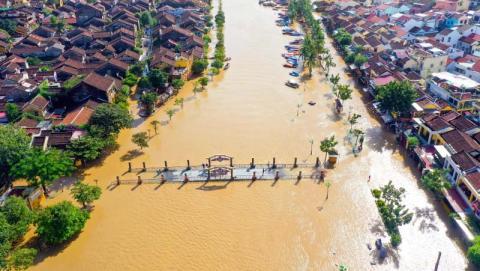Between March and May 2024, Eastern Africa experienced devastating heavy rains and widespread flooding, driven by El Niño. Known as the Long Rains, this period caused landslides, mudslides, and severe damage across the region. The effects were particularly harsh on women and children, who lost lives, homes, and farmland. Agriculture, an industry where women play a crucial role, was severely impacted.
Women, often the primary caregivers, were especially affected. Their responsibilities for securing water, food, and healthcare for families became more difficult with the destruction of homes and displacement. Many women were forced into temporary shelters, where they faced increased risks of gender-based violence, including harassment and abuse.
The floods also triggered major public health crises, with clean water and sanitation systems compromised. Diseases such as malaria, cholera, and measles surged, posing serious health risks to pregnant women and children. Access to healthcare services became increasingly limited, further worsening maternal health issues.
To address health concerns during floods, the World Health Organization (WHO) recommends several protective measures. Communities need to be aware of evacuation routes and warning signals, with women, children, and people with disabilities given priority. Ensuring the availability of clean drinking water is critical, particularly for women responsible for water collection and food preparation. Good hygienic practices and safe food preparation techniques are essential to reduce the risk of disease outbreaks, while avoiding flooded areas and using mosquito repellents help minimize exposure to hazards like drowning or mosquito-borne diseases, including malaria.
Looking ahead, proactive measures are vital to reduce the impact of future disasters, which are becoming more frequent due to climate change. Monitoring weather forecasts can help communities prepare, particularly women, who often lack access to timely information. Safe shelters and preparedness kits with essential supplies, such as flashlights, cash, and first aid, can empower women to protect their families. Investments in infrastructure, agriculture, clean water, healthcare, and emergency systems are necessary to build resilience. Designing buildings to withstand extreme weather and relocating from flood-prone areas can offer additional protection, especially for women who manage household resources.
By prioritizing gender-sensitive responses and addressing the specific needs of women and vulnerable groups, Eastern Africa can better prepare for future natural disasters, fostering more resilient and inclusive communities. More details on this Link

